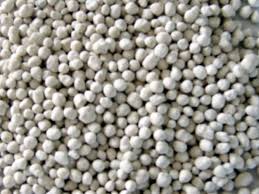
Oct . 20, 2024 04:06 Back to list
npk fertilizer manufacturer supplier
Understanding NPK Fertilizer A Guide for Manufacturers and Suppliers
NPK fertilizer, which stands for Nitrogen (N), Phosphorus (P), and Potassium (K), is a cornerstone in agricultural practices across the globe. These three essential nutrients are crucial for plant growth and development, making NPK fertilizers highly sought after by farmers and gardeners alike. For manufacturers and suppliers, understanding the intricacies of NPK fertilizers can significantly enhance their business operations and client relationships.
The Composition of NPK Fertilizers
NPK fertilizers are available in various formulations, often denoted by a series of three numbers on the packaging. Each number represents the percentage by weight of nitrogen, phosphorus, and potassium in the fertilizer. For example, an NPK ratio of 10-20-10 indicates that the product contains 10% nitrogen, 20% phosphorus, and 10% potassium.
- Nitrogen (N) promotes leafy growth and is essential for the synthesis of amino acids and proteins in plants. - Phosphorus (P) supports root development, flowering, and fruiting, playing a vital role in energy transfer within the plant. - Potassium (K) enhances overall plant health, improving resistance to diseases and environmental stressors while regulating various physiological processes.
Manufacturing NPK Fertilizers
Producing NPK fertilizers involves various steps, including sourcing raw materials, chemical processing, and quality control. Common raw materials include ammonium nitrate for nitrogen, super phosphate for phosphorus, and potassium chloride for potassium. Manufacturers must carefully balance these components to create a product that meets market demands.
Advancements in technology have facilitated the production of more efficient and environmentally friendly fertilizers. Controlled-release formulations, for instance, allow nutrients to be released gradually, reducing the risk of nutrient runoff and improving uptake by plants.
Quality Control and Compliance
For manufacturers and suppliers, maintaining high standards of quality is crucial. This includes not only ensuring that the fertilizer's nutrient content matches labeled specifications but also adhering to environmental regulations. Conducting regular tests for contaminants, such as heavy metals, is vital to ensure product safety.
npk fertilizer manufacturer supplier

Supply chain transparency is increasingly important as consumers become more knowledgeable about the products they use. Clear labeling and detailed product information can enhance trust and loyalty among customers.
Marketing Strategies for NPK Fertilizers
To effectively market NPK fertilizers, suppliers should consider several strategies
1. Educate Customers Providing valuable information about the benefits and application methods of NPK fertilizers can empower customers to make informed decisions. Workshops, webinars, and informative content can strengthen relationships.
2. Target Specific Markets Different crops require different nutrient ratios. By customizing marketing strategies to target specific industries, such as horticulture, organic farming, or large-scale agriculture, suppliers can cater to the unique needs of diverse customer groups.
3. Leverage Digital Platforms Utilizing online marketing tactics can help suppliers reach wider audiences. Social media, email campaigns, and online advertising can effectively promote products and generate leads.
4. Build Partnerships Establishing strong connections with agricultural co-operatives, garden centers, and other distributors can expand market reach and create new business opportunities.
Conclusion
In an ever-evolving agricultural landscape, the role of NPK fertilizers remains critical. For manufacturers and suppliers, staying informed about industry trends, technological advancements, and customer needs is essential for success. By emphasizing quality, transparency, and targeted marketing, businesses can strengthen their position in the market while supporting sustainable farming practices. As the demand for high-quality fertilizers continues to grow, so too does the opportunity for suppliers to innovate and expand their reach.
-
10 10 10 Fertilizer Organic—Balanced NPK for All Plants
NewsJul.30,2025
-
Premium 10 10 10 Fertilizer Organic for Balanced Plant Growth
NewsJul.29,2025
-
Premium 10 10 10 Fertilizer Organic for Balanced Plant Growth
NewsJul.29,2025
-
Premium 10 10 10 Fertilizer Organic for Balanced Plant Growth
NewsJul.29,2025
-
50 Pound Bags of 13-13-13 Fertilizer for All Plants – Bulk & Organic Options
NewsJul.28,2025
-
High-Efficiency 15-30-15 Granular Fertilizer for Healthy Crops
NewsJul.28,2025
